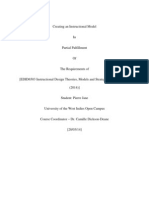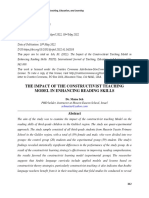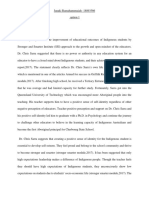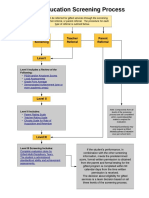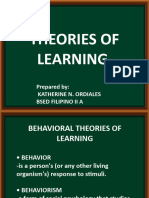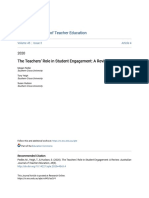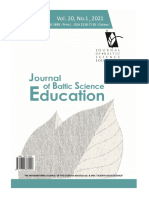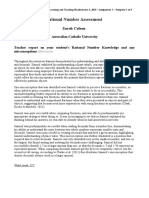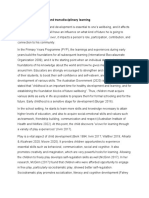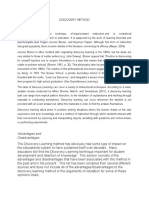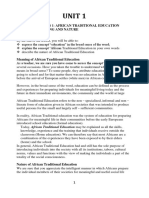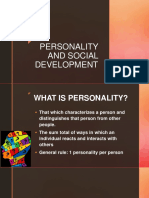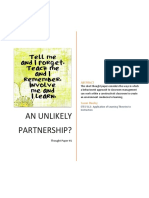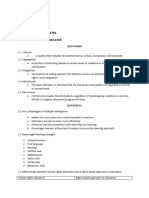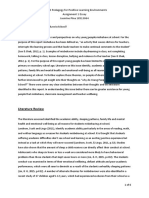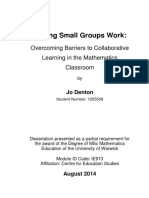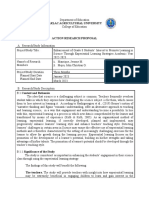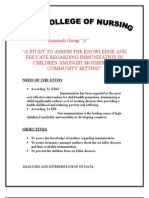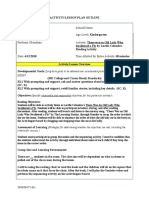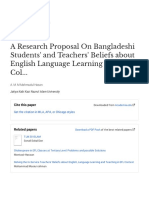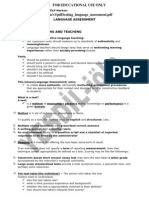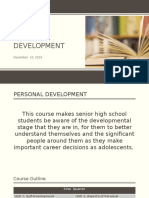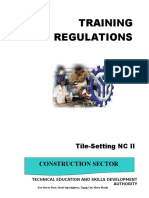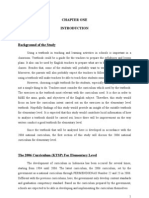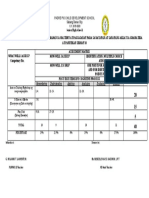0% found this document useful (0 votes)
254 views17 pagesExperiential Learning Boosts Science Engagement
The document discusses a proposed thesis on the implications of experiential learning activities in teaching science on student engagement. It will examine this issue through a study of junior high school science teachers at Zaragoza National High School. The introduction outlines the need to move beyond traditional teacher-centered learning to more learner-centered experiential approaches. It reviews literature on experiential learning, student engagement, and the relationship between experiential learning and engagement. The conceptual framework identifies experiential learning as the independent variable and student engagement as the dependent variable.
Uploaded by
Joshua SagunCopyright
© © All Rights Reserved
We take content rights seriously. If you suspect this is your content, claim it here.
Available Formats
Download as DOCX, PDF, TXT or read online on Scribd
0% found this document useful (0 votes)
254 views17 pagesExperiential Learning Boosts Science Engagement
The document discusses a proposed thesis on the implications of experiential learning activities in teaching science on student engagement. It will examine this issue through a study of junior high school science teachers at Zaragoza National High School. The introduction outlines the need to move beyond traditional teacher-centered learning to more learner-centered experiential approaches. It reviews literature on experiential learning, student engagement, and the relationship between experiential learning and engagement. The conceptual framework identifies experiential learning as the independent variable and student engagement as the dependent variable.
Uploaded by
Joshua SagunCopyright
© © All Rights Reserved
We take content rights seriously. If you suspect this is your content, claim it here.
Available Formats
Download as DOCX, PDF, TXT or read online on Scribd
/ 17






